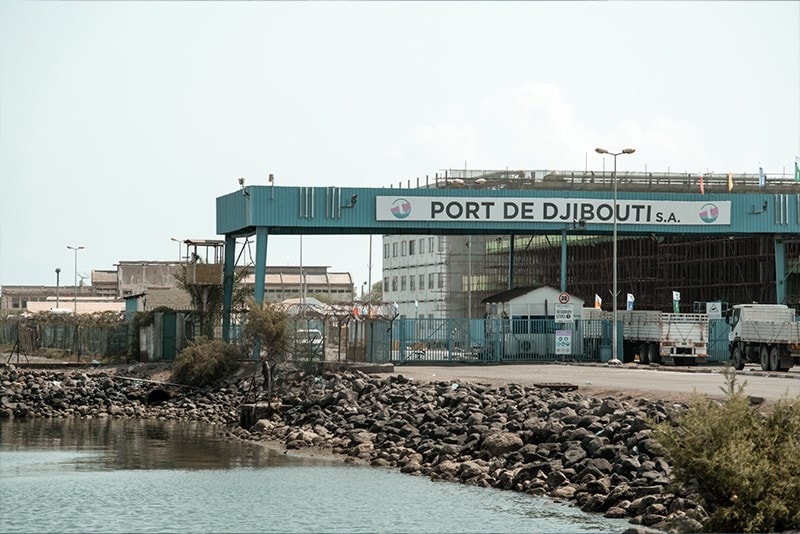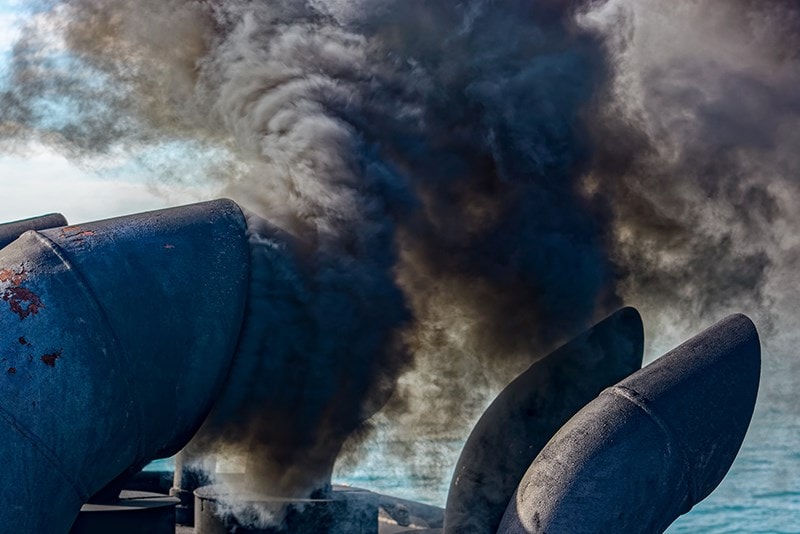Djibouti - Port Authorities Crackdown on Air Pollution from Vessels
In their advisory notice, the Club's local correspondent, McLeans, highlighted that the Djibouti Port Authorities have recently escalated their efforts to combat air pollution by imposing substantial fines on vessels caught releasing black smoke into the atmosphere.
The fines, issued under Port Regulation Article 35, come in response to concerns about environmental pollution in the port waters. According to the regulation, it is forbidden to "produce excessive smoke during manoeuvres or, more generally, while the vessel is in port."
The fines, categorised as 4th class fines, amount to Djibouti Francs 1,800,000.00, approximately USD 10,100.00. However, in practice, the penalty is a standard USD 10,000.00 per violation. The authorities rely on photographic evidence taken during random visits by port officials while vessels operate within the port waters.
In the initial stages of implementing these fines, vessels faced a flat USD 10,000.00 penalty, regardless of the alleged pollution or the vessel's duration in the port. However, recent instances indicate a shift in approach, with authorities issuing multiple and cumulative fines until they determine the vessel no longer contributes to air pollution.
An illustrative case in the advisory involves a vessel that contested an initial fine, leading to a prolonged dispute resulting in seventeen fines. Authorities claimed the vessel polluted the atmosphere for seventeen consecutive days, accumulating fines totalling USD 170,000.00. Negotiations between the vessel's agents and the authorities proved challenging, culminating in the vessel's owners paying the fine through their local agents to facilitate the vessel's departure.

Local authorities prefer to handle such matters directly with local agents, making negotiations challenging for vessel owners. Consequently, swift action by owners to seek assistance and provide negotiation instructions is recommended to mitigate fines before situations escalate and potentially increase exposure.
Excessive black smoke emanating from a vessel's exhaust system frequently indicates incomplete fuel combustion. Addressing and lessening this problem necessitates an understanding of various contributing factors. Vessels should consider the following key elements:
• Inadequate fuel quality or contamination can lead to incomplete combustion, causing the production of black smoke. Elevated carbon residue levels in the fuel contribute to particulate matter in the exhaust.
• The combustion process relies on a specific air-to-fuel ratio for optimal efficiency. An improper mixture, such as insufficient air supply, can result in incomplete combustion and the generation of black smoke.
• Overloading or operating an engine at excessively low loads can disrupt combustion. Matching the engine load to power demand helps maintain optimal conditions, with an ideal load falling within the range of 70% to 80%.
• Poorly maintained engines, malfunctioning injectors, and worn-out components can impede combustion efficiency, producing black smoke.
• Insufficient fuel atomisation during injection can produce larger droplets that do not combust completely, contributing to black smoke formation.
• Turbocharger issues, including malfunctioning components, excessive wear, clogged air filters, fouled blades and nozzle rings, can affect charge air pressure, impeding combustion and causing black smoke.
• Inadequate combustion chamber design hinders fuel and air mixing, preventing complete combustion and resulting in black smoke emissions.
• Ambient conditions, such as temperature and humidity variations, can influence the combustion process, requiring engine adjustments for optimal efficiency.
• Regular maintenance, including cleaning and inspecting engine components, is crucial for preventing deposits and ensuring proper combustion.
• Precise timing of fuel injection and ignition is critical for efficient combustion. Incorrect injection timing or improper tappet clearances can lead to incomplete combustion and black smoke generation.
• Clogged fuel injectors disrupt the spray pattern, impacting fuel distribution in the combustion chamber and causing incomplete combustion.
• Fuel pump malfunctions can influence fuel delivery to the combustion chamber, affecting combustion and potentially causing black smoke emission.

Another source contributing to black smoke in the exhaust system may be oil-fired boilers. An improper air-to-fuel ratio within the combustion chamber, defective atomising nozzles, incorrect fuel oil temperatures, and issues with air distribution units, such as swirler plates and fans, can all contribute to incomplete combustion and the visible emission of black smoke.
Addressing these factors through regular maintenance, proper operational practices, and adherence to fuel quality standards can help minimise the risk of excessive black smoke emissions from a vessel's exhaust system, preventing possible exposure to fines by the authorities. Furthermore, it is advisable to refrain from using the vessel's incinerators during approach and in ports.
Members requiring further guidance should contact the Loss Prevention Department.
